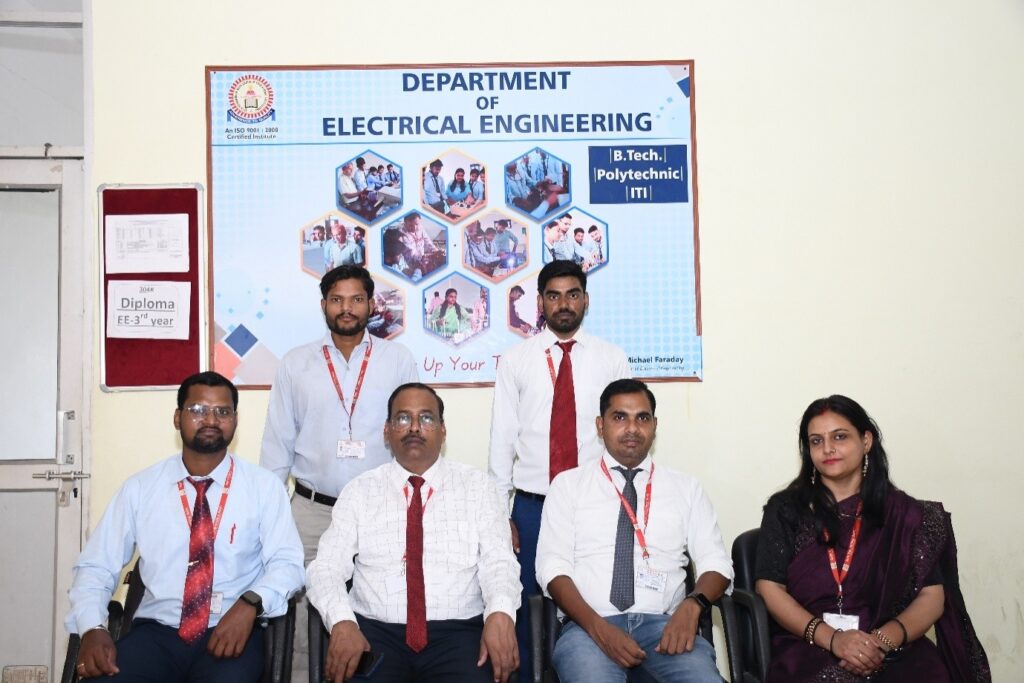
The Department of Electrical Engineering
The department of Electrical engineering in our college got recognized in the year 2008. We deal at SVNIET with providing electrical knowledge to our students and made them aware of various applications of electrical power and its utilization in industrial world. We also go through many problems being faced by an engineer in present time related to power system and during operation of various electric machines. The very first objective of our department is to provide value added knowledge along with higher practical experiences from beginning to end of the program for better career opportunities for our students. Our department focuses on providing personality development programs to our students to guide them of having professional, practical and moral values too for a better future of our society at global level. We also make sure that our final year students are able to present their final year projects blissfully.
Vision of the Department:
To provide standard and appreciate education in the field of Electrical Engineering and Conversion of various energies in electrical form for holding high estimation, and preparing competent graduates towards the holistic solution to different sectors of electrical as well as allied industries.
Mission of the Department:
M-1: To provide quality education by enhancing skills and inspiring graduates for lifelong learning.
M-2: To focus on collaboration with industries and adapting best practices around to create milestones for the same in the field.
M-3: To promote & motivate our graduates for research and harness them with innovative ideas.
M-4: To cultivate moral and ethical values in students by providing professional and valuable education.
Program Educational Objectives
(PEOs)
PEO-1: To develop a quality learning environment with ethical guidelines for a productive career in the technical field.
PEO-2: To enhance their technical knowledge by continuous practice in their respective industries.
PEO-3: To develop professional and communication skills in graduates so that they can build confidence to compete with the outside world
PEO-4: To provide a favorable environment for graduates and motivate them for lifelong learning.
Program Outcomes (POs)
(Engineering Graduates will be able to)
PO-1 Engineering Knowledge: Apply the knowledge of mathematics, science, engineering fundamentals, and an engineering specialization to the solution of complex engineering problems.
PO-2 Problem analysis: Identify, formulate, review research literature, and analyze complex engineering problems reaching substantiated conclusions using first principles of mathematics, natural sciences, and engineering sciences.
PO-3 Design/development of solutions: Design solutions for complex engineering problems and design system components or processes that meet the specified needs with appropriate consideration for the public health and safety, and the cultural, societal, and environmental considerations.
PO-4 Conduct investigations of complex problems: Use research-based knowledge and research methods including design of experiments, analysis and interpretation of data and synthesis of the information to provide valid conclusions.
PO-5 Modern tool usage: Create, select, and apply appropriate techniques, resources, and modern engineering and IT tools including prediction and modeling to complex engineering activities with an understanding of the limitations.
PO-6 The engineer and society: Apply reasoning informed by the contextual knowledge to assess societal, health, safety, legal and cultural issues and the consequent responsibilities relevant to the professional engineering practice.
PO-7 Environment and sustainability: Understand the impact of the professional engineering solutions in societal and environmental contexts, and demonstrate the knowledge of, and need for sustainable development.
PO-8 Ethics: Apply ethical principles and commit to professional ethics and responsibilities and norms of the engineering practice.
PO-9 Individual and team work: Function effectively as an individual, and as a member or leader in diverse teams, and in multidisciplinary settings.
PO-10 Communication: Communicate effectively on complex engineering activities with the engineering community and with society at large, such as, being able to comprehend and write effective reports and design documentation, make effective presentations, and give and receive clear instructions.
PO-11 Project management and finance: Demonstrate knowledge and understanding of the engineering and management principles and apply these to one’s own work, as a member and leader in a team, to manage projects and in multidisciplinary environments.
PO-12. Life-long learning: Recognize the need for and have the preparation and ability to engage in independent and life-long learning in the broadest context of technological change.
Program-Specific Outcomes (PSOs)
After the successful completion of B. Tech. program in “Electrical Engineering” the graduate will have
PSO-1: To impart Engineering knowledge to solve various problems in the field of Electrical Engineering.
PSO-2: To motivate towards self-learning and develop the ability to be entrepreneurs.
PSO-3: To develop ethics and moral values among the students of Electrical Engineering for development of the society.
Message from HoD’s Desk
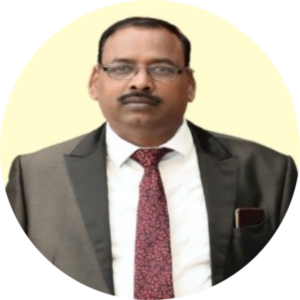
Mr. Sunil Kumar Singh
(Head of Department)
Area of Interest: Power System and Control system.
This department offers the program of Bachelor of Technology (B.Tech.) in “Electrical Engineering” it focuses on an overall growth of a student in the field of Electrical Engineering and is currently working upon to enlighten the student. We have a strong hold on an undergraduate program for evolving an electrical engineer for the futuristic advance generation.
The Department builds students into an engineer to face the outside world with a better understanding of electrical engineering at a professional level. Our main goal is to guide the aspirants with various innovative technologies related to electrical engineering, the undergraduate will be modified for serving the society as an electrical engineer and fulfilling his dreams and goals.
During the course of time the student’s career and technical skills will get superior and they will adapt the working culture of team work by enhancing communications skills. Faculty members are motivated to attain higher degrees and carry out their study work in the research field.
They also conduct various workshops and seminars for an overall development of the undergraduate engineering students.
With Best Wishes
Department of Electrical Engineering
Electrical Engineering Faculties
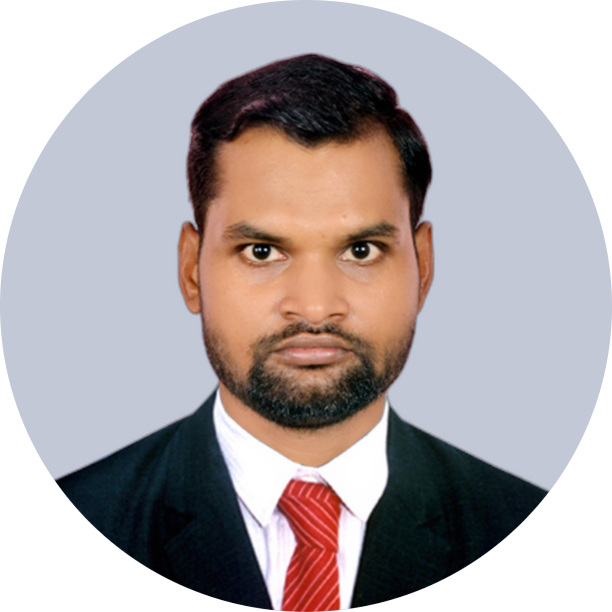
Mr. Pradeep Kumar
(Assistant Professor)
Area of Interest: Fundamentals of Electrical and Electronics Engineering, Electrical Machine, Electrical Power System.

Mrs. Sarita Verma
(Assistant Professor)
Area of Interest: Basic Electronic Engineering, Communication Engineering, Microcontroller, Microprocessor, Digital Electronics, Electrical Measurement and Instrumentation.

Mr. Harish Nath Shukla
(Assistant Professor)
Area of Interest: Basic Electrical Engineering, Basic Signal and System, Power Quality and Facts, Power system, Electric Machines.

Mr. Dhanesh Kumar Yadav
(Assistant Professor)
Area of Interest: Switch gear and protection and Electrical Machine.

Mr. Jitendra Kumar Yadav
(Assistant Professor)
Area of Interest: Power System and Electrical Machine.

Mr. Braj Kishor Verma
(Assistant Professor)
Area of Interest: Power System and Basic Electrical Engineering.

Ms. Khushboo Kumari
(Assistant Professor)
Area of Interest: Electrical machine and Basic of Power Generation Systems.

Mr. Anuj Verma
(Assistant Professor)
Area of Interest: Power Electronics, Power System, Electric Machines.

Mr. Himanshu kumar
(Assistant Professor)
Area of Interest: Basic Electrical Engineering, Microprocessor, Network Analysis and Synthesis, Electrical Machine.
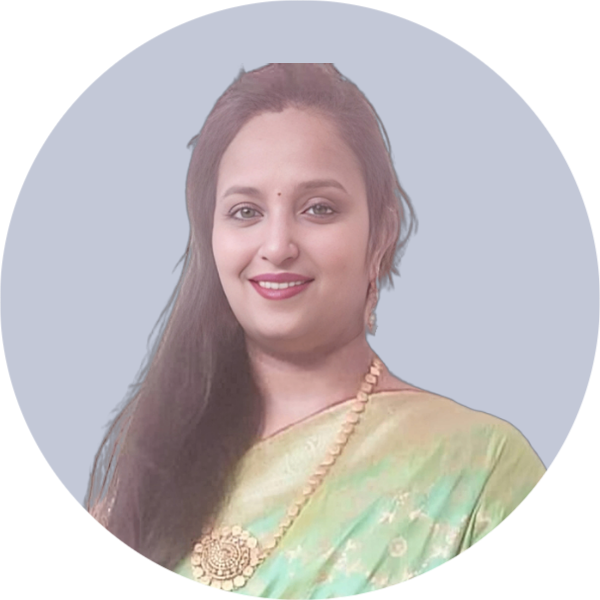
Mrs. Ekta Rai
(Assistant Professor)
Area of Interest: Digital communication, Radar System, VLSI.

Mr. Vivek Pandey
(Assistant Professor)
Area of Interest: Electrical machine, Transmission and Distribution of Electrical power, Industrial Electronics and control, Electrical Switchgear and protection.
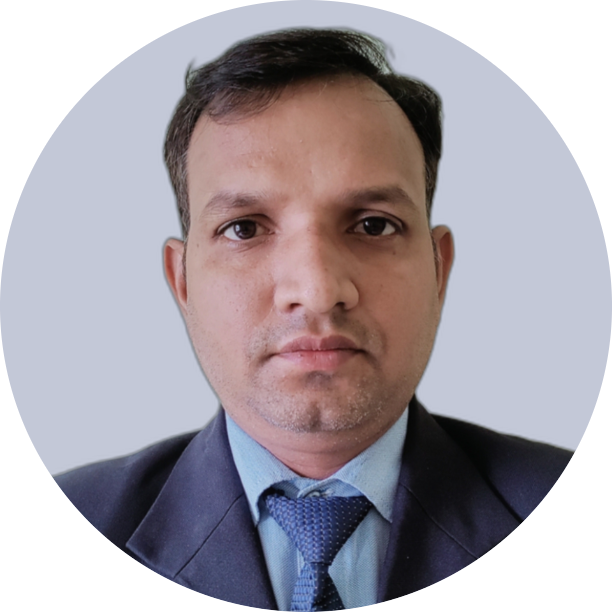
Mr. Rajkishore Chauhan
(Assistant Professor)
Area of Interest: Network Analysis and System, Control System, Electrical Measurement and Instrumentation, Power Electronics, Electric Machines

Mr. Ubaidullah
(Assistant Professor)
Area of Interest: Electric Machines, Power System, Special Machines, Electrical Measurement and Instrumentation, Electromagnetic Field Theory.
Syllabus
Syllabus
B. Tech. 2nd Year
B. Tech. 3rd Year
B. Tech. 4th Year
Newsletter
Achievements
Departmental Society
Institute–Industry Interaction
Electrical Engineering Labs
In electrical department various labs are provided for betterment and practical understanding of various concepts and theories in Electrical Engineering. Various doubts of student related to theory gets easily solved. Students will also learn to work upon software’s like MATLAB and LabVIEW. After going through all the labs the undergraduate will get a practical exposure of industry which will help him in building a better future.
Few labs in electrical Engineering are described below:
Basic Electrical Engineering Laboratory
In this laboratory, the student will learn to design basic electrical circuits and solve various network theorems. The laboratory is provided with both AC and DC power supplies with suitable protections that enable the students to carry out the experiments in a safer environment. The lab also consists of various equipment’s such as energy meter, watt meters, voltmeters and ammeters, these instruments helps the student in analyzing the experiment and taking accurate readings of various electrical parameters. Along with the measuring instruments the lab also consists of various types of transformers of different type and sizes. Other than transformer the lab is equipped with motors and generators of AC and DC type. After the experiments the undergraduate will learn the basic idea of electrical circuits and will gain knowledge about smooth operation of motors.
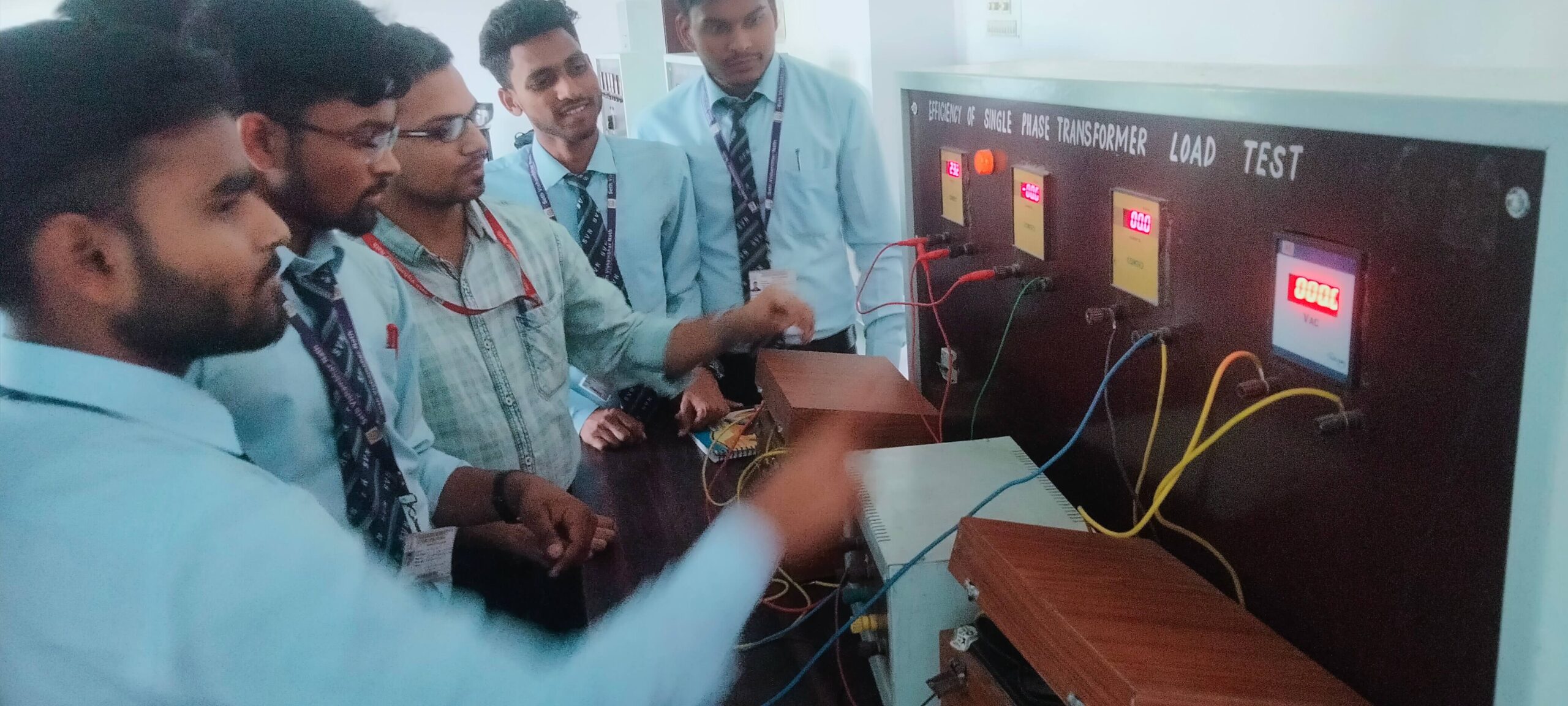
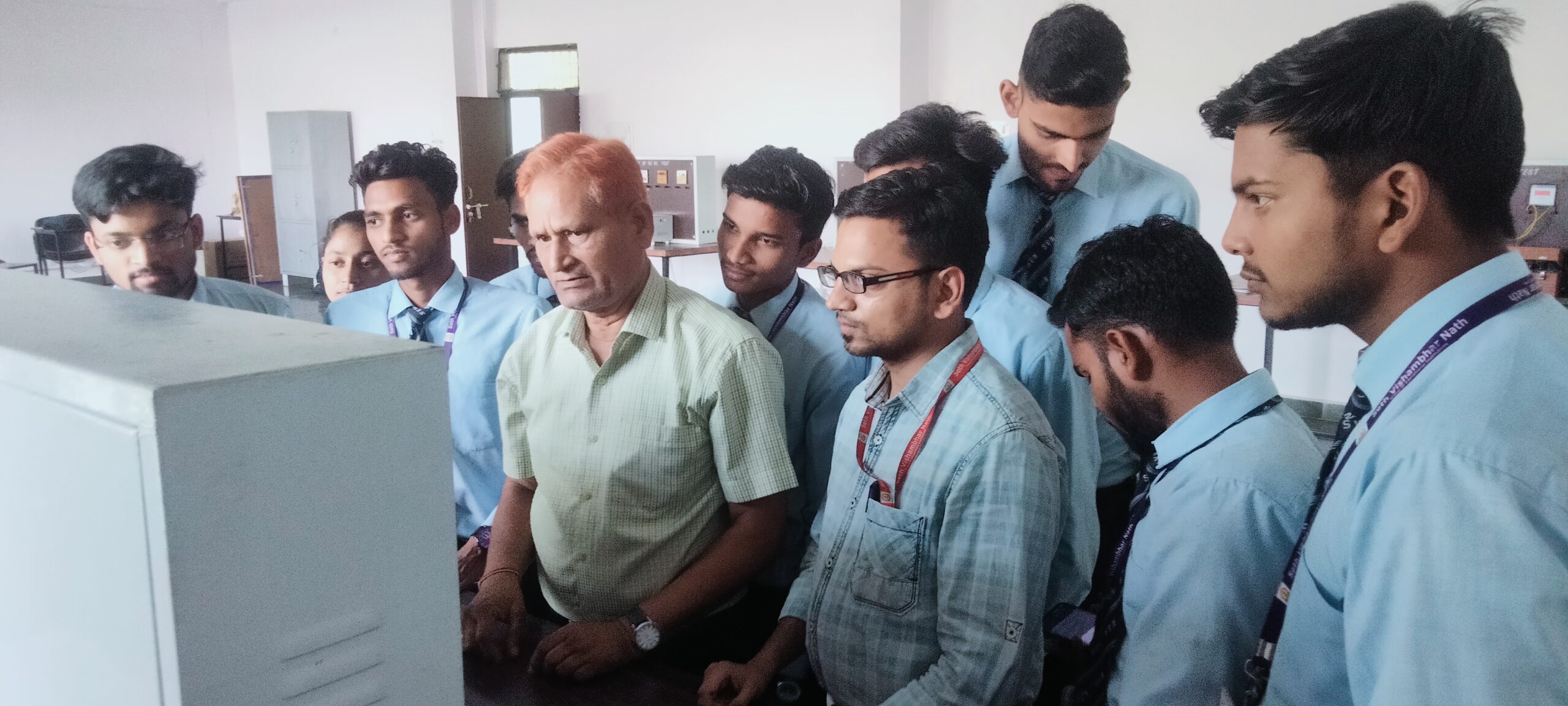
Electrical Machines Laboratory
An electrical machine lab is one of the core labs for a prospective electrical engineer. After acquiring theoretical knowledge of various electrical machines the student needs to attain practical knowledge also. For this purpose electrical machine labs are designed for them.
An Electrical machine lab is sub divided into two labs. In Electrical Machine-1 & Electrical Machine-2.
In Electrical Machine-1 lab the student will perform various experiments regarding controlling and working of DC machine and Transformer.
In Electrical Machine-2 lab undergraduate will also perform and generate various graphs for verifying characteristics of different electrical machines. Students are provided with operation details of different electrical machine and are able to operate them smoothly.
Circuit Simulation Laboratory
Circuit Simulation lab briefs the knowledge about various electrical network theorems and perform them at a practical level. The circuit simulation lab is actually a software lab where the students perform and verify various electrical theorems on software ‘PSPICE’. The student gets a better view about network theorems such as Norton, Thevenin, Superposition, Maximum Power transfer etc. practically. Here they also learn about the working of Low Pass and High Pass filters of Active and Passive types. Due to software PSPICE, the student is able to attain knowledge of various network theorems and is able to verify them accurately and is done at ease.


Power System Laboratory
Both the labs help the students in acquiring knowledge of power system basics, the power system-1 lab runs on software ‘MATLAB’ or LabVIEW.
These softwares helps the students to perform various experiments of Power System in an easier way, the undergraduate also performs experiments in which electrical equipments are involved. Hence the student is able to attain practical knowledge also. The lab comprises of protection, simulation, high voltage and machine related experiments. Facilities are available for over current, under voltage, directional, differential and distance relays including different numerical relays.Electrical Measurement and Instrumentation Lab
The main objective of the Electrical Measurement Instrumentation Lab is to provide the students practical knowledge of electrical equipment’s. The main purpose of the lab is to expose the students to different types of electrical measuring instruments and help them in understanding the proper use of these instruments for the measurement of an unknown quantity. The student also learns about the practical use of various electrical equipments involved in measurement.
In this lab the student also learn about the calibration of AC bridges as well as regarding transformers involved in measurement like Current Transformer and Potential Transformer.

Polytechnic Program
Vision of the Department:
To develop competitive Electrical Engineers having professional quality and ethical values to serve industry and society along with future challenges.
Mission of the Department:
M-1: To provide technical knowledge to students through teaching-learning techniques to cope-up with future challenges.
M-2: To impart quality education to students in the field of Electrical Engineering.
M-3: To provide the learning environment so that the students can gain ethical and moral values.
M-4: To design various activities for students to inculcate social awareness and commitment to society.
Program Educational Objectives
(PEOs)
The Program Educational Objectives (PEO) is the program to prepare the Diploma holders for their career and professional living in Electrical Engineering offered by Seth Vishambhar Nath Institute of Engineering and Technology, Barabanki, Uttar Pradesh, affiliated to Board of Technical Education, Uttar Pradesh INDIA are:
PEO-1: To develop the ability to solve basic electrical problems.
PEO-2: To develop the ability to solve various industrial problems through software and designs.
PEO-3: To impart communication and entrepreneurship quality to students as an individual, team members, and leaders.
PEO-4: To impart Ethical knowledge for the growth of themselves and society.
Attributes / Program Outcomes (POs)
(Diploma in Engineering, students will be able to)
PO-1: Basic and Discipline specific knowledge: Apply knowledge of basic mathematics, science and engineering fundamentals and engineering specialization to solve the engineering problems.
PO-2: Problem analysis: Identify and analyze well-defined engineering problems using codified standard methods.
PO-3: Design/ development of solutions: Design solutions for well-defined technical problems and assist with the design of systems components or processes to meet specified needs.
PO-4: Engineering Tools, Experimentation and Testing: Apply modern engineering tools and appropriate technique to conduct standard tests and measurements.
PO-5: Engineering practices for society, sustainability and environment: Apply appropriate
technology in context of society, sustainability, environment and ethical practices.
PO-6: Project Management: Use engineering management principles individually, as a team member or a leader to manage projects and effectively communicate about well-defined engineering activities.
PO-7: Life-long learning: Ability to analyze individual needs and engage in updating in the context of technological changes.
Program-Specific Outcomes
(PSOs)
After the successful completion of Diploma program in “Electrical Engineering” the students will have:
PSO-1: Knowledge of electrical engineering: – Students will be able to apply their technical knowledge of Electrical Engineering to design various electrical systems.
PSO-2: Specific Problem: Students will be able to provide technical solutions for Electrical Engineering problems.
PSO-3: Ethical development: To develop moral values among the students to work in the field of Electrical Engineering for the industry.
Syllabus

